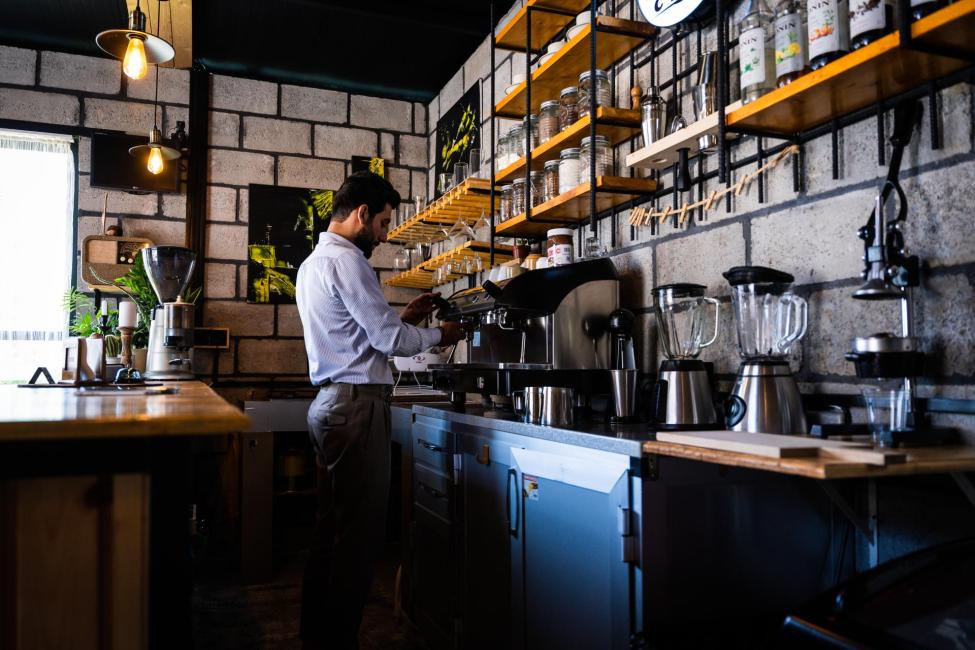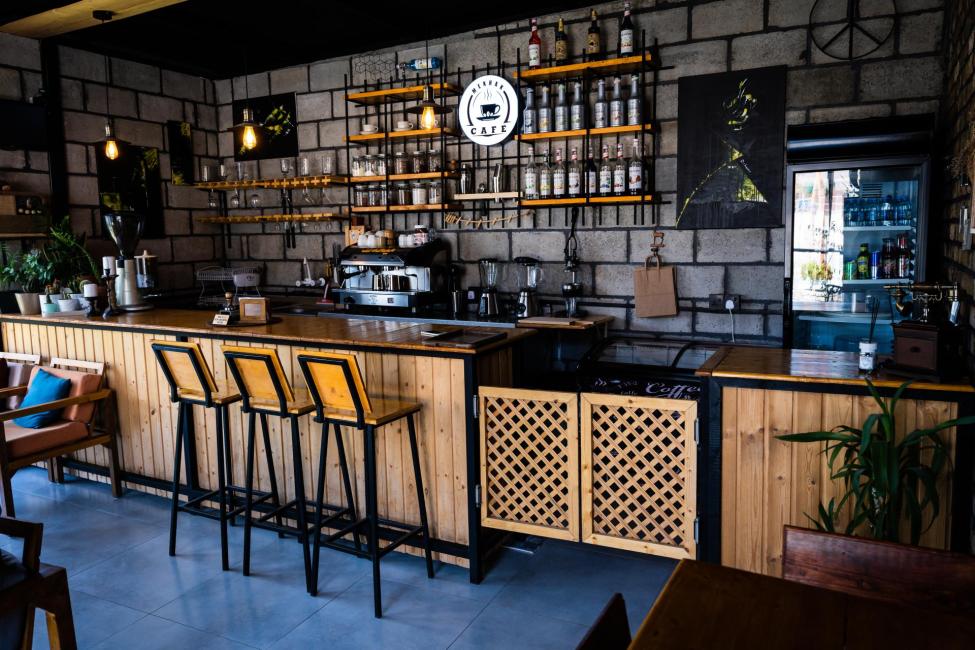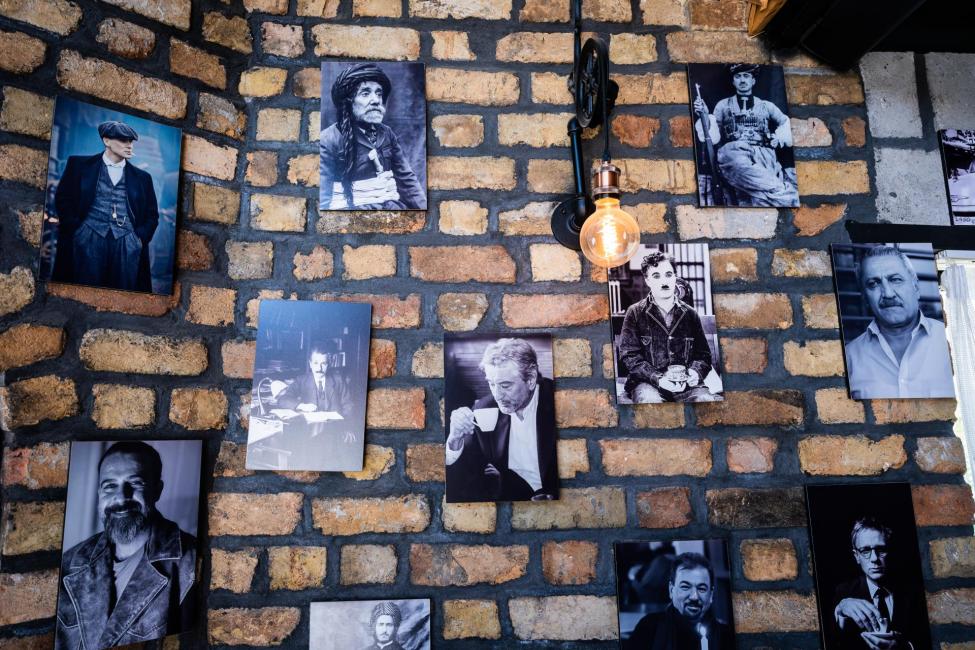-
Who we are
WHO WE AREIOM is the leading inter-governmental organization promoting humane and orderly migration for the benefit of all, with presence in over 100 countries. IOM has been active in the Middle East and North Africa from the early 1980s.
About
About
IOM Global
IOM Global
-
Our Work
Our WorkAs the leading inter-governmental organization promoting since 1951 humane and orderly migration, IOM plays a key role to support the achievement of the 2030 Agenda through different areas of intervention that connect both humanitarian assistance and sustainable development. Across the Middle East and North Africa region, IOM supports States in realizing their national priorities and in fulfilling their international commitments in the areas of migration, displacement and mobility.
Cross-cutting (Global)
Cross-cutting (Global)
- Where we work
- Take Action
- Data and Resources
- 2030 Agenda
In the recent history of Iraq, every city has its own disaster story. The city of Halabja’s story is that of a horrific chemical attack and the massacre of Kurdish people. Carried out by the regime of Saddam Hussein, the 1988 attack killed approximately 5,000 people and injured around 10,000 more – causing mass displacement, leaving long-term psychosocial scars and lapsing the city into years of economic turmoil. Then in 2014, the ISIL war and economic crisis in Iraq and the Kurdistan region of Iraq sent the situation in Halabja into further decline and stunted progress in the city.
Today, 34 years after the chemical attack, the citizens of Halabja suffer from a lack of basic services and a stagnant economy. Many government projects that were halted due to the ISIL war have yet to be resumed, and the city has seen an absence of public investment since 2014.
And yet, amidst the city’s dark history and formidable challenges, a young man’s endeavour to make a living is transforming Halabja’s culture and community.
26 year old Sary has recently set up a café that has become a landmark in his city. Located in the city center and characterized by its unique aesthetics and design, Mekhak café is a breath of fresh air for the residents of Halabja.
Indeed, Sary’s café is unique, bringing together the old and the new in a distinctive harmony – on the outside, a façade comprised of aged bricks from an old home in a now-abandoned local neighbourhood; wood of a variety commonly seen around the city; bright steel roofing and modernly-placed swathes of glass separates the café from the surrounding concrete block architecture.
Inside, black and white photographs of past and present local and international personalities hang on one wall – beloved Kurdish actors, poets and leaders of yesteryear alongside the faces of Charlie Chaplin, George Clooney and others. Old film cameras, the front half of a motorcycle and a single vinyl record decorate the remaining walls – a style of interior decoration common to vintage corner cafés in cosmopolitan cities around the world.
“I think a business must do some things differently, otherwise it won’t succeed,” Sary explains about his design choices. “I have an eye for detail. Everywhere I go, I notice the subtle elements of the place.”
While the design is visually refreshing — it’s rare to find a place in Halabja where one can sit under a framed black and white photo of Marilyn Monroe and sip a cup of espresso — that’s not all there is to the café. Sary’s decision not to serve shisha (a waterpipe for smoking mixtures of flavoured tobacco) and to ban cigarettes has rendered the café a less male-dominated space compared to other cafés around town and a key destination for families to spend leisure time. Indeed, most traditional tea houses in the region restrict entry to men alone; families are rarely seen in such settings.
“There are only four other cafés in the city where one can bring his wife and children,” Sary says. “Many people tell me to serve shisha because it is very profitable, but I don’t want to do that because many of my regular customers are families, and I don’t want to lose them.”
Though the design pays tribute to the city and its culture, it is also considered an innovative new social space in Halabja. Sary thinks the place will positively contribute to the development of local culture. Though he sometimes receives negative comments from people who disapprove of places where girls and boys can meet, Sary says more and more people are praising the café.
“There are all kinds of people in a city. Whatever you do, you should expect positive and negative feedback,” Sary adds, “but I think it’s important for such businesses to exist so that the society can transform.”
Despite attempts to modernize the city and bring more economic prosperity to its people, much of Halabja’s progress was interrupted by the ISIL war and subsequent economic crisis.
“In Halabja, there aren’t many entertaining places or activities that youth can attend,” Sary tells us. “I have a friend who comes here every single night; I think it’s sad that he has no other place to spend his youth.”
Getting the café on track wasn’t an easy task for Sary. After receiving his diploma in 2018, Sary wanted to do something he felt was special— he couldn’t opt for a conventional job. Two years and one COVID-19 lockdown later, he was thrilled to start his own caravan café. He served cold drinks and ice-cream at small wooden tables on the sidewalk. Two months later, winter arrived in Halabja, and customers shifted away from the caravan’s open atmosphere. That was the end of the caravan.
Still, Sary didn’t give up. He rented a vacant lot and built Mekhak café from the ground up. He didn’t have much money to set up the place, and despite doing most of the handiwork himself and producing all the tables and chairs with his own hands, he was still forced to take on a lot of debt to make things work.
“There was always this fear in me that people simply wouldn’t show up to the café, and I would fail,” Sary divulges, “so I was very happy when I saw the café full of people, sitting at the tables and on the chairs that I worked for months constructing.”
However, a few months after opening Mekhak café, his expensive espresso machine broke, and, dismayed, Sary was in too much debt to afford to buy another one. A friend told him about IOM Iraq’s Individual Livelihood Assistance (ILA) programme and suggested that he apply. Sary’s application was successful, and he received the ILA in September of 2021.
The ILA programme aims to support the development of human capital through vocational training, on the-job trainings, job referrals and provision of business start-up or business expansion packages.
“I was very happy when I received the support from IOM,” Sary smiles. “Not only did it come at the right time, and I was able to buy another espresso machine, but it was also a big moral support for me and pushed me to continue.” This support helped him to keep Mekhak’s doors open and maintain the distinct quality that makes the café so unique.
For Sary, keeping Mekhak’s doors open meant more than maintaining his livelihood, it also meant keeping fresh the early memories of his love story — indeed, his long-time friend Rezhin was by his side at the café’s founding and worked there from the start.
“One of my best memories is cooking food together in the kitchen,” Sary recalls. “Neither of us wanted to go home and eat in the afternoon, so we would stay in the café and prepare a simple meal there.”
Six months after Mekhak’s grand opening, Sary and Rezhin married. It is fitting, then, that Mekhak means “clove” in Kurdish, a symbol for love in Kurdish culture.
Today, Rezhin is still one of the three staff that serve the 50 seats of the busy café.
Sary plans to expand Mekhak and hire more employees to help him grow his thriving business.
“I want to introduce food to the menu as well, but I don’t want conventional food like pizza or burgers, I want the food to be different and special,” he says.
“If I have enough money, I will build the most extraordinary place.”
By: Yad ABDULQADER













